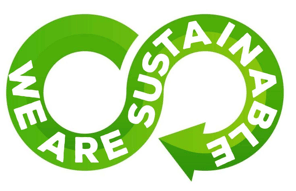Sustainable Business Solutions
Tailored SME solutions, no one-size-fits-all packages: We recognize that every sole trader, startup, small and medium-sized enterprise is unique in its operations, market context, resources, and sustainability maturity. Our consultancy avoids cookie-cutter approaches by designing bespoke sustainability strategies that align with each SME’s goals, regulatory requirements, and stakeholder expectations.
This includes:
ESG policy development - structured policy in line with United Nations Sustainability Goals
Materiality assessments:
This process helps identify and prioritize the ESG topics that are most important to both the business and its stakeholders. It typically includes:
Stakeholder Engagement: Engaging with key internal and external stakeholders (such as employees, customers, regulators, and investors) to understand their sustainability expectations and concerns.
Impact Assessment: Analyzing the actual and potential environmental and social impacts of the company’s operations, supply chain, and products.
Prioritization: Mapping issues onto a materiality matrix based on their significance to stakeholders and impact on business operations, which allows for clear focus areas.
Framework Alignment: Ensuring that prioritized topics align with leading reporting frameworks such as GRI, CSRD, TCFD, and SASB.
The outcome is a targeted, stakeholder-informed sustainability strategy that enhances transparency and effectiveness.
Vision-aligned sustainability planning (short-, medium-, and long-term goals) for you business.
Sustainability Strategy & Roadmap
Data Collection & Baseline Assessment
Carbon footprint (Scopes 1, 2, and 3):
Scope 1 includes direct emissions from owned or controlled sources—such as fuel combustion in company vehicles or boilers.
Scope 2 accounts for indirect emissions from the generation of purchased electricity, steam, heating, and cooling consumed by the business.
Scope 3 encompasses all other indirect emissions that occur in the value chain of the business, including emissions from purchased goods and services, transportation and distribution, business travel, employee commuting, waste disposal, and the use of sold products.
We help clients calculate and monitor these emissions using globally recognized standards such as the Greenhouse Gas (GHG) Protocol, and provide emissions reduction strategies to support carbon neutrality and
net-zero goals. Energy, water, and waste audits, ESG governance gap assessments
Compliance & Reporting Support
GRI (Global Reporting Initiative): Widely adopted sustainability reporting framework focused on economic, environmental, and social impacts. SMEs report against specific topic standards relevant to their operations (e.g., energy use, waste, labor practices).
CDP (Carbon Disclosure Project): A platform that allows companies to disclose environmental data related to climate change, water security, and forests. SMEs need to provide emissions data, energy use, and climate risks/opportunities.
TCFD (Task Force on Climate-Related Financial Disclosures): Requires companies to disclose how climate risks affect their financial performance, including governance, strategy, risk management, and metrics/targets.
CSRD (Corporate Sustainability Reporting Directive – EU): A mandatory EU framework requiring standardized sustainability disclosures across ESG topics. SMEs under EU jurisdiction must disclose under ESRS (European Sustainability Reporting Standards).
SASB (Sustainability Accounting Standards Board): Provides industry-specific ESG standards that focus on financially material issues. Ideal for SMEs wanting to align with investor expectations.
UAE ESG Disclosure Standards: Emphasize climate risk, corporate governance, gender diversity, and sustainable finance practices. Relevant for SMEs operating in regulated UAE sectors.
EU Taxonomy: A classification system to determine if economic activities are environmentally sustainable. SMEs providing green services/products or seeking funding must assess their alignment with the taxonomy’s six environmental objectives.
ISO 14001 and ISO 50001 integration support:
ISO 14001 focuses on environmental management systems (EMS). We assist SMEs in embedding ISO 14001 principles into their operations by helping them:
Identify environmental aspects and impacts
Set and track environmental objectives and performance indicators
Establish operational controls and monitoring mechanisms
Prepare for internal audits and third-party certification
Foster a culture of continuous improvement and regulatory compliance
ISO 50001 targets energy management systems (EnMS). We guide our clients in
Conducting energy reviews and identifying energy-saving opportunities
Establishing an energy baseline and monitoring system
Setting energy performance indicators (EnPIs) and reduction targets
Implementing operational and technological measures for energy efficiency
Achieving ISO 50001 certification to demonstrate energy responsibility to stakeholders
Our integration support ensures SMEs benefit from harmonized systems that reduce environmental impact, enhance operational efficiency, and improve their overall sustainability performance.
Assurance support and documentation preparation






Science Based Targets (SBTi) alignment
Renewable energy procurement (e.g., PPAs, RECs)
Emission reduction action plans: We support clients in designing tailored emission reduction action plans that are both practical and science-aligned. These plans include:
Baseline Emission Mapping: Identifying sources and quantities of Scope 1, 2, and 3 emissions to create a starting point for targeted reductions.
Target Setting: Establishing clear short-, medium-, and long-term emissions reduction targets, aligned with the Science Based Targets initiative (SBTi) and national decarbonisation commitments.
Decarbonisation Levers: Implementing a combination of technological, behavioral, and operational solutions such as:
Transitioning to renewable energy sources (e.g., solar PPAs, green tariffs)
Upgrading equipment for energy efficiency (LEDs, HVAC systems, smart meters)
Electrifying vehicle fleets and encouraging low-carbon logistics
Engaging suppliers to reduce upstream emissions
Monitoring & Reporting: Setting up systems for regular tracking of progress against KPIs, using dashboards and emission calculators.
Communication: Crafting narratives for annual reports, websites, and customer communications to showcase climate action.
Each plan is customized to the SME’s sector, resources, and market context to ensure realistic, measurable, and verifiable outcomes.
Training and workshops
We provide customized sustainability training and capacity-building workshops tailored to the needs of each SME. These sessions are designed to equip internal teams with the knowledge, tools, and confidence to champion sustainability initiatives. Key features include:
ESG Awareness & Leadership: Introduction to core sustainability concepts, business relevance, and global frameworks (GRI, TCFD, CDP, etc.).
Operational Sustainability: Training staff on energy efficiency, waste reduction, sustainable procurement, and responsible resource management.
Data Collection & Reporting Training: Hands-on workshops for finance, operations, and ESG teams on how to gather, manage, and report data in compliance with frameworks and standards.
ISO 14001/50001 Familiarization: Overview and practical guidance on environmental and energy management systems.
Scenario-Based Learning: Real-life business case studies and interactive exercises to reinforce best practices.
Leadership Coaching: Executive sessions focused on integrating sustainability into core strategy, stakeholder communications, and brand value.
Each session can be delivered virtually or in-person, and is supported by take-home materials, assessments, and follow-up consultations to ensure long-term impact and internal ownership of sustainability goals.


Net-Zero & Decarbonisation Planning


Next Steps
Book a free ESG readiness consultation
Receive a tailored sustainability diagnostic report
Start your SME’s sustainability transformation
Together, let’s turn your Sustainability into your Strength.
ESG and Sustainability monthly plans start from
We Are Sustainable
Transforming strategy for a sustainable future today.
Consulting
contact@wearesustainable.co.uk
+44 07351734869
+44 07908007708
wearesustainable is a brand name for 1ESG consulting Ltd, 15 Neptune Court, Vanguard Way, Cardiff CF24 5PJ. Company Registered in England and Wales - Company number 16410420
Terms and Condition
Data Protection
Client Privacy
© 2025. All rights reserved.
